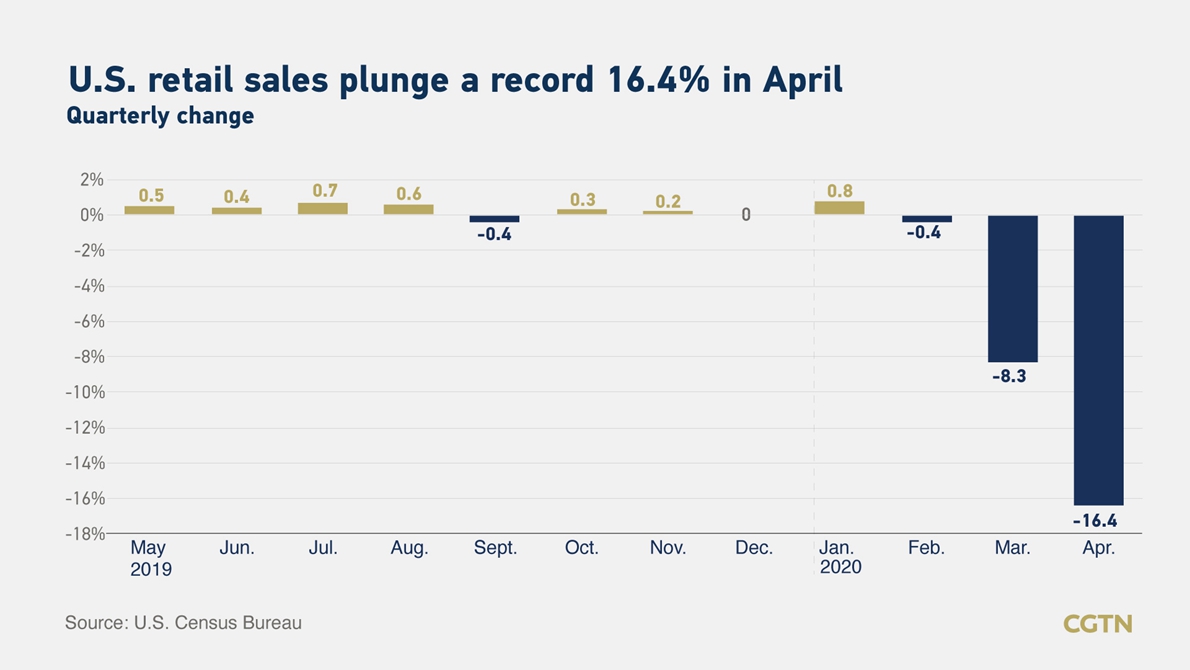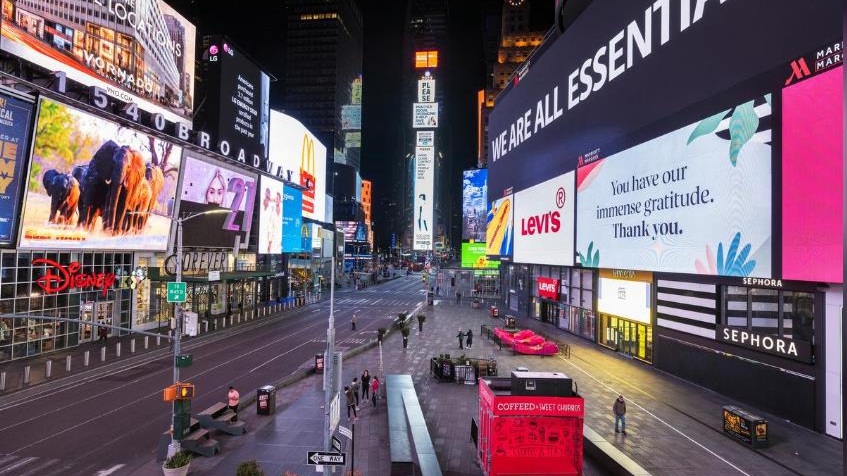U.S. retail sales endured a second straight month of record declines in April as the novel coronavirus pandemic kept Americans at home, putting the economy on track for its biggest contraction in the second quarter since the Great Depression.
The Commerce Department said on Friday retail sales plunged by 16.4 percent last month, the biggest decline since the government started tracking the series in 1992. Data for March was revised to show receipts at retailers falling by 8.3 percent instead of dropping by 8.7 percent as previously reported.
Economists polled by Reuters had forecast retail sales plummeting by 12.0 percent in April, and those surveyed by Dow Jones expected the number to fall by 12.3 percent.

Excluding automobiles, gasoline, building materials and food services, retail sales tumbled by 15.3 percent last month after a surprise 3.1-percent jump in March. These so-called core retail sales correspond most closely with the consumer spending component of the gross domestic product report.
The collapse in retail sales added to a historic 20.5 million job losses last month in underscoring the deepening economic slump that analysts warn could take years to recover from. U.S. Federal Reserve Chair Jerome Powell on Wednesday warned of an "extended period" of weak growth and stagnant incomes.
"We pretty much know April was a disaster. The question is as the lockdowns ease in May and June, what segments of retail sales are going to be coming back and what are not coming back at all," said Sung Won Sohn, a business economics professor at Loyola Marymount University in Los Angeles. "All indications are the recovery is going to be slower and gradual, if we have one."

Times Square in the Manhattan borough of New York, U.S., May 5, 2020. /Reuters
Times Square in the Manhattan borough of New York, U.S., May 5, 2020. /Reuters
Businesses around the country are reopening as states and local governments ease travel restrictions, which were imposed in mid-March to slow the spread of COVID-19, the respiratory illness caused by the virus.
But establishments are operating well below capacity and there are fears a second wave of COVID-19 infections could keep consumers away from shopping malls.
Consumer spending, which accounts for more than two-thirds of U.S. economic activity, tumbled at a 7.6-percent annualized rate in the first quarter, the sharpest drop since the second quarter of 1980. The economy contracted at a 4.8-percent rate in the January-March quarter. Output is expected to contract at as much as a 40-percent pace in the second quarter, the deepest since the 1930s.
(With input from Reuters)